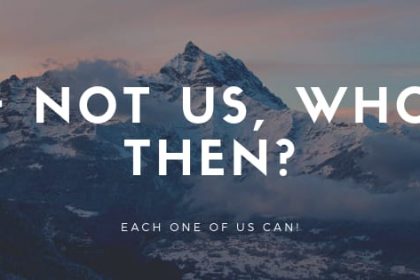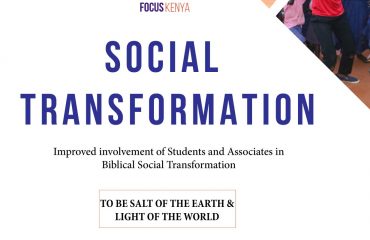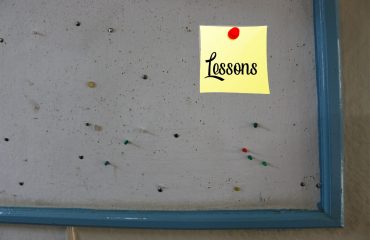
Every time I have studied the book of Nehemiah, I have prayed that God would raise a Nehemiah generation in our time. A generation that has not only the burden to see the transformation in the society, but also one that is ready to transform the concerns into tangible actions. For this to be achieved, one must have counted the cost and committed to doing the right thing even if it means that they will be at it alone.
Genuinely concerned
When Nehemiah received news about the condition of the walls of Jerusalem, he was filled with grief and mourned for many days (Nehemiah 1:4). Even though the book of Nehemiah does not explicitly give information of what other people or leaders back in Jerusalem were doing concerning the ruinous walls, there is an indication that they were not concerned as much (Nehemiah 3: 10-16). For this, they needed a Nehemiah who was both concerned and committed to seeing the restoration of Jerusalem; one who could clearly and convincingly communicate the need and rally people to action. This is what every person need for societal transformation. In addition to this, one ought to pay attention to the following principles:
- Awareness and Salience of the issue – someone needs to be aware of the issue at hand and find out whether it matters to them and why?
- Intrinsic motivation – One needs to find out whether they feel the moral responsibility to address the issue?
- Efficacy – Do you think your action will have an impact on the system?
- Capacity for collective action – Will other citizens/people join me? Is there an organization that has the capacity to launch actions on this issue that you can collaborate?
- Cost of Inaction – What is the cost benefit of my participation? Am I afraid to act? What is the cost of not taking an action?[1]
The problem is inaction
We must remain committed to this course and as noted by Haile Selassie, “Throughout history it has been the inaction of those who could have acted; the indifference of those who should have known better; the silence of the voice of justice when it mattered most; that has made it possible for evil to triumph”. God has called us to be the salt and the light of the world (Mathew 5: 13-16) and that ‘world’ is where we live, work and the people we interact with daily. That is the ‘’world’’ we need to influence by doing the right thing as an individual or community. Samuel Koranteng Pipim observes that time has come for Christians to be ashamed of a superficial religious experience, the mediocre performance, waffling positions and the cheap vanilla-faith that costs nothing. He further notes that unless we are radically committed to the Lord and His word, our profession is empty sloganeerin and that radical commitment is a call to Christian Non conformity and a plea to stand out and be counter-cultural. Anything less would be unbiblical, irrational and irrelevant – if not a betrayal
Let us challenge the status quo
We must be brave enough to say enough is enough, that we will not settle for the status quo, and that we will challenge the wrong cultures in our society and in the market place – our world. We must be ready to walk the unpopular path even though we will be alone. The story of Allen Kagina from Uganda is a shred of evidence that we can completely change our systems if only we make a choice and allow God to transform the world around us through. As the Director General of Uganda Revenue Authority, she transformed the institution to efficiently collect tax leading to 317.5% increase in tax collection.[2] Like the Daniel and Joseph of the Bible, Allen is the contemporary embodiment of transformative Christian living. This is the Christian calling and this is what we must do- being light and salt to the world.
Friends, it’s possible to bring change, we just need to be bold and radical. Christ was radical for calling sin by its name (John 2:12-25). He even called the Pharisees children of the devil, as stipulated in John 8:43. The grace of God is free but being a disciple of Christ is costly. We must therefore be ready to count the cost and pay it. According to Matthew 16: 24, “…Jesus said to His disciples, “If anyone desires to come after me, let him deny himself, and take up his cross, and follow me”. This means that it is more than going to church; it is about the truth of the word of God changing us, renewing our minds and transforming us from the inside out.
We must be ready to say “….But as for me…” like Joshua did in the midst of idolators. (Joshua 24; 15). We need to be the salt and light of this world as Jesus expects us to; in arresting corruption and moral decay of our society and in expelling spiritual darkness. We need to be counted!
[1] Helene Grandvoinnet, Lead Social Development Specialist, Governance Global Practice, World Bank.
[2] Samuel Sanya (25 October 2014), What makes Allen Kagina tick, New Vision. 3rd May 2019
< http://www.newvision.co.ug/new_vision/news/1313159/makes-allen-kagina-tick >





Great message that has challenged me.
The bitter truth that has gone missing in our churches and generation.
KENYA ON A SLICK SLOPE!
Kenya has unfortunately nurtured a mistaken culture that will be difficult to break. Apparently, we have unanimously settled for tribalism and corruption as part and parcel of our society. It is not only uncommon that every community will expect their leader while in power to brusquely get rich but even surprised if they don’t play foul and acquire wealth or at least have their close tribesmen, relatives, and friends employed; they will be mocked and frowned at by the community as the ‘opportunity wasted’. The power of money has become a ticket for respect in many circles of society. Politicians have consequently turned out to be a myriad of leaders linked to endless chains of corruption. The basis for electing new leaders has shifted from their integrity and whether they can deliver, to ‘the ones who are there have eaten enough, let us give someone else a chance to also eat- the theory of a new thief is better than the older one!” All of us must now bow our heads in shame.
Although ‘all’ Kenyans wish that tribalism comes to an end, most people are quite comfortable to live, study, play and in every way interact with those from their own ethnic background. You must have noted by now that according to your tribe, the rest 41 are viewed as primitive and evil by your people. Is it not strange that stereotypes are always negative! In fact, stereotypes have played a central role in escalating ethnic suspicion and tensions. It all began with a mindset before it sneaked to the heart and the actions became inevitable. Do you at times feel like the only people you can work and live with are those from your own ethnic community? If so, you are equally trapped and must rediscover yourself.
Negative ethnicity and corruption are the two vices that I intimately feel Kenya has allowed to grow and it could take a kind of revolution to heal from this. The problem with these two diseases is that we can easily diagnose them but obtaining a cure has remained a mystery! Prenatal care was indeed easy but postnatal care has become impossible. While the rich minority has got the power to twist the agenda to their liking, sensitivity to marginalization is ultimately causing every community to seek power. Our nation has turned out to be a kind of an animal tied by forty-two ethnic chains and everyone is pulling to their own direction. It might soon tear into pieces.
Kenya is on a slippery slope towards disintegration and if nothing is done, the country may not be put together again! The moral decay and degeneration is going beyond elastic limits. To strangle the jinn of negative ethnicity which is really the mother of corruption, there are issues that need to be addressed. Thieves cannot be trusted to catch thieves. They have a tendency of ganging up to form a thieving squad. We have always entrusted politicians with the responsibility to unite us. As a result, they have only achieved a kind of a five-year term unity forced down our throats to enhance their political ambitions.
Being scarred by miscarriages of justice, Kenya has seen most of its citizens opt for bribery so as to receive quick service delivery. Such long procedures in issuing a verdict of a criminal have branded Justice an expensive commodity favoring a few that can afford it. The adage ‘justice delayed is justice denied’ says it better. If our courts had attempted to offer a timely fair trial, then the intolerant Kenyans would change their attitude and begin to defend the law with fortitude and resilience. But are we justified to watch from our comfort zones or take the law into our hands? Even if it means taking the court to court, we have every reason to fight on with a relentless spirit until we crash the heartbeat of corruption.
The many different tribes in our country is certainly not a creation for our disunity. God’s idea was to kill boredom and monotony and enhance unity in diversity. You must, therefore, begin looking for the strengths of that other tribe that you have always hated. The tyranny of numbers does not mean that the minority are children of a lesser God. Unless it begins with you, the reader of this article, then we have only managed to add noise to these controversial topics. You might soon send it to the archives and ‘move forward’. I am afraid, maybe it does not even worry you at all. But all that I can plead with you is that you do something even if it means only thinking about it because that is really where the action begins. With me, I have at least managed to get it off my chest. You must remember that ethnocentrism and corruption are wars we cannot afford to lose!
Monari
A very informative forum.